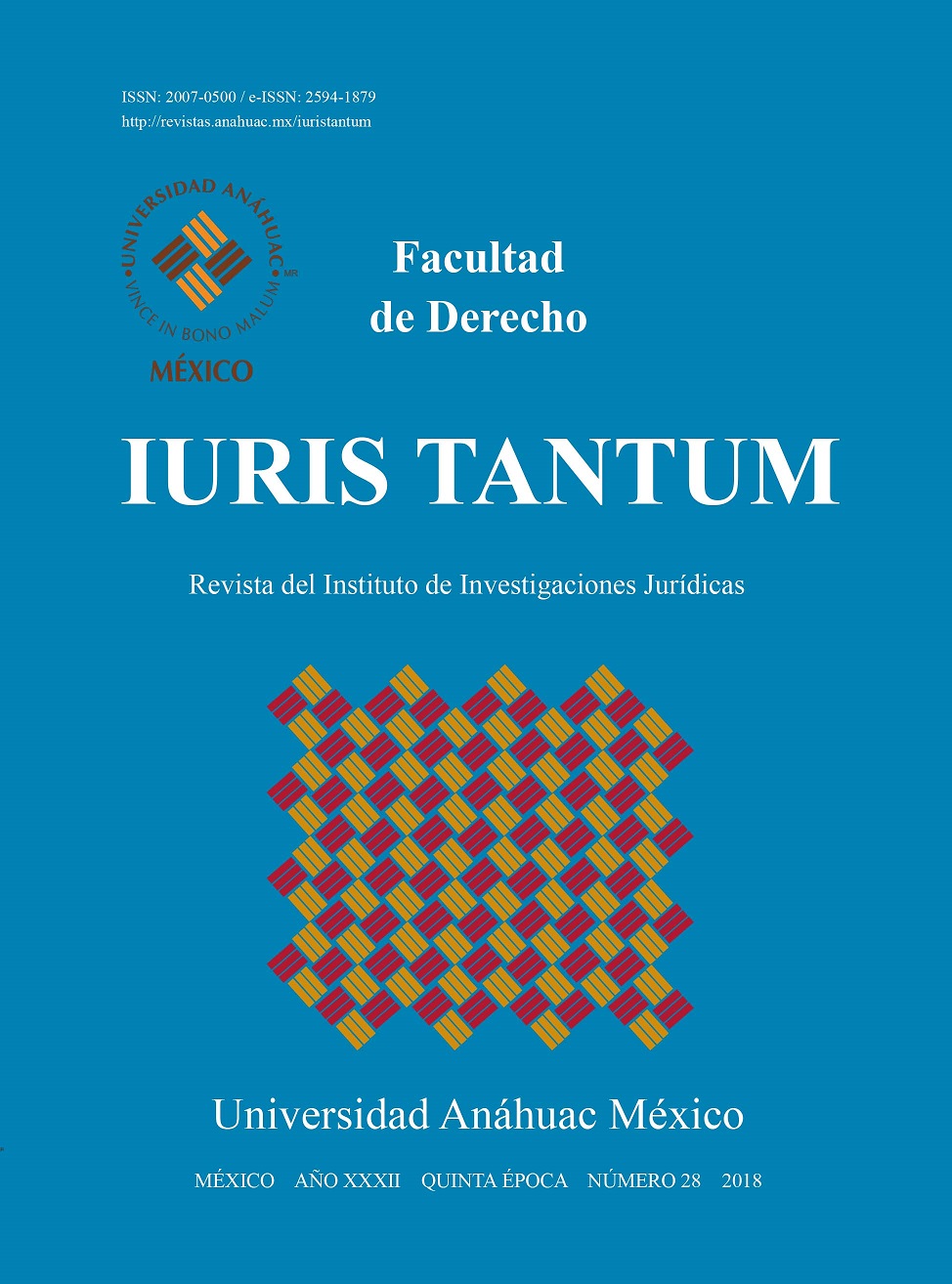Constituent power as sociopolitical cathegory
Main Article Content
Abstract
The present article of reflection presents a critical perspective of the constitutional power understood in a restrictively legal manner. The hegemonic theory of contemporary law holds that this concept has no relevance to legal science; its political material dimension is not recognized and therefore any real relation
between the law and the political is discarded. Our purpose is to justify its constitutive and potential character, in order to recognize its political and emancipatory dimension. For this purpose we will reconstruct a notion of constituent power as a critical key and we will explain its importance for the Latin American decolonial turn and the realization of constitutionalism from below (from social movements and peripheral subaltern cultures).
Downloads
PLUMX Metrics
Article Details
Iuris Tantum is distributed under international Creative Commons Attribution-NonCommercial-ShareAlike 4.0 International License.
The author keeps the property rights with no restriction whatsoever and guarantees the magazine the right to be the first publication of the work. The author is free to deposit the published version in any other medium, such as an institutional archive or on his own website.
References
BOCKENFORDE, E. (2000). Estudios sobre el estado de derecho y la democracia.
Madrid: Trotta.
DE ZUBIRÍA, S. (2015). Dimensiones políticas y culturales del conflicto en Colombia.
La Habana, Cuba: Comisión Histórica del Conflicto y las Víctimas -Mesa
de Negociaciones FARC-Gobierno de Colombia.
FOUCAULT, M. (2003). La verdad y las formas jurídicas. Madrid: Gedisa.
LANDER, E. (2000). La colonialidad del saber: eurocentrismo y ciencias sociales.
Perspectivas Latinoamericanas. Buenos Aires: Consejo Latinoamericano
de Ciencias Sociales.
LASCARRO, C. (2012). De la hegemonía (neo) constitucional a la estrategia del
nuevo constitucionalismo latinoamericano. Revista Jurídica Universidad de
Caldas, 59-69.
NEGRI, A., (2011). Spinoza y nosotros. Buenos Aires: Nueva visión.
_____, (2014). El poder constituyente. Madrid: Traficante de sueños.
_____, (2003). Del retorno: abecedario político. Buenos Aires: Random House
Mondadori.
_____, (2008). El poder constituyente. En V. autores, Imperio, multitud y sociedad
abigarrada (págs. 103-112). La Paz: Consejo Latinoamericano de Ciencias
Sociales.
PACHÓN, D. (2007). Modernidad, eurocentrismo y colonialidad del saber. Seminario
sobre el debate modernidad-posmodernidad y su incidencia en Colombia.
Bogotá: Instituto Pensar Universidad Javeriana.
RAWLS, J. (1995). Teoría de la Justicia. Ciudad de México: Fondo de cultura
económica.
ROJAS TUDELA, F. (2012). Hacia una nueva gramática constitucional. Crítica
Jurídica No. 34, 95-121.
SANÍN RESTREPO, R. (2009). Teoría Crítica Constitucional. Bogotá: Pontificia
Universidad Javeriana, Facultad de Ciencias Jurídicas: Grupo Editorial
Ibañez.
SANTOS, B. d. (2010). Refundación del Estado en América Latina. Perspectivas
desde una epistemología del sur. La Paz: Plural Editories.
SCHMITT, C. (2009). El concepto de lo político. Madrid: Alianza Editores.
ZULUAGA, D. (2013). Sobre el poder constituyente. Medellín: Tesis de Grado,
Facultad de derecho Universidad Pontificia Bolivariana.

